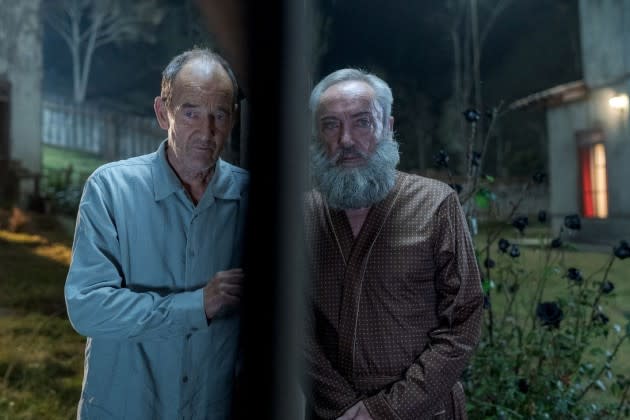Under Pressure From Directors, Israeli Film Fund Drops “Loyalty Pledge”

Israel’s largest film fund, the Rabinovitz Foundation’s Israel Cinema Project, has bowed to pressure from the country’s director’s guild to drop a requirement that filmmakers submitting projects for funding agree to what has been termed a “loyalty pledge” that their films does not “harm the good name of the State of Israel.”
The clause has been part of funding agreements from the Israel Cinema Project since 2017 and refers to a 2011 amendment to Israeli legislation called the “foundations of the budget law.” The law gives Israel’s finance ministry the authority to cut state funding for an institution if it supports activities judged to deny the “existence of the State of Israel as a Jewish and democratic state,” that mark “[Israeli] Independence Day or the day of the establishment of the state as a day of mourning” or that “harm the honor of the country’s flag” among other criteria. The Rabinowitz Foundation’s Israel Cinema Project is the country’s largest film fund. Last year the group handed out around $8.7 million to back feature films, documentaries and student projects.
More from The Hollywood Reporter
Daniel Bruhl to Play Fashion Icon Karl Lagerfeld in Disney+ Series 'Kaiser Karl'
Penske Media Corporation Launches The Hollywood Reporter Roma With Brainstore Media
Chaim Topol, Tevye the Milkman in 'Fiddler on the Roof,' Dies at 87
The clause went unnoticed for several years but amid recent political upheaval in Israel, including widespread protests against the country’s current right-wing government, there has been renewed focus on it. A group of some 50 prominent Israeli directors, including Hagai Levy, Ran Tal, Nadav Lapid, Shmulik Maoz, Guy Nativ, Ari Pullman, Eran Kolirin, Raanan Alexandrovich and others, called on the local film industry to boycott the Israel Cinema Project unless it removed the “loyalty pledge” from its contracts.
Directors who objected see the pledge as a form of political censorship, claiming it would outlaw depictions of Israeli history or current events that do not toe the official government line. Depicting Israel’s occupation of the Palestinian territories from the perspective of the Palestinians, for example, could be seen as a violation of the “loyalty” requirement. Colloquially, the law underpinning the clause is called the “Nakba Law,” a reference to the term, which means catastrophe in Arabic, used by Palestinians to refer to the mass displacement of Palestinian people that preceded and followed the foundation of the Israeli state in 1948.
Earlier this year, Israel’s new minister for culture and sport, Miki Zohar, said the government should not use taxpayer money to fund art that harms “Israel’s good name both in Israel and around the world,” or that criticizes the country’s military, the IDF.
Ari Pullman, in an interview with Israeli newspaper Haaretz, said the meaning of the pledge, and the underlying law, has changed as Israeli politics has moved further to the right.
“The question ‘what does or does not harm the honor of the state’ had one meaning six years ago, one a year ago, and it has a different meaning today because of everything that is happening around us. It cannot be ignored.”
The directors’ protest comes amid mass demonstrations and unrest in Israel as hundreds of thousands of citizens have taken to the streets to oppose plans by the right-wing government of Prime Minister Benjamin Netanyahu to overhaul the country’s judiciary, a move many see as a threat to Israel’s democratic foundations.
In an email to The Hollywood Reporter, a representative for the Rabinovitz Foundation said that the inclusion of the clause was required by Israeli law, not by the foundation itself, but that, “following discussions with the Israeli Director’s Guild” the foundation has agreed to remove it. The foundation rejects all accusations of censorship.
“It is important to emphasize that since the inclusion of the referral to this law in the foundation’s agreement, the Rabinovich Foundation has supported the production of hundreds of Israeli films, and not even one film was canceled or otherwise censured by the foundation,” the spokesperson said.
Many of the same filmmakers who called for a boycott of the foundation signed a letter last summer calling for the Locarno Film Festival to drop the world premiere screening of Israeli feature My Neighbor Adolf from director Leon Prudovsky because it had been partially financed by the Israel Cinema Project. The group said the foundation attached “racist and explicitly political strings” as a condition for its funding.
Israel’s ministry of culture and sport has always denied accusations of censorship.

